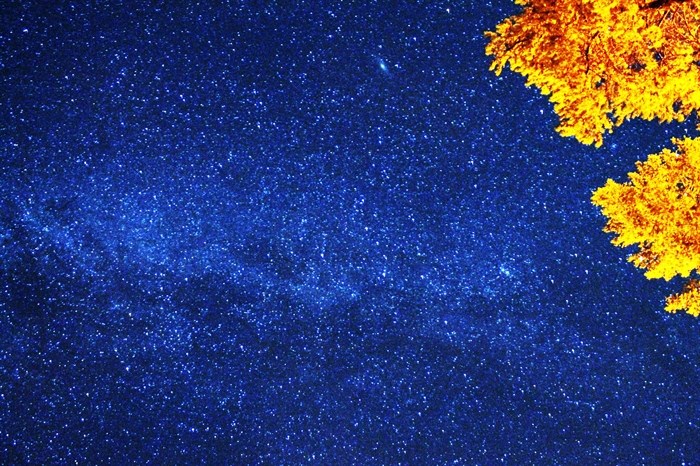
(DAN WALTON / iNFOnews.ca)
October 08, 2021 - 4:30 PM
Draconids meteor shower peaks tonight and conditions in the Okanagan and Kamloops are ideal for a good show.
“Tonight’s kind of the perfect conditions,” said Dr. Trey Wenger, postdoctoral fellow at the Dominion Radio Astrophysical Observatory in Kaleden. “The moon’s in a waxing crescent, it will set right around sunset, and it looks like it’s going to be a nice clear dark night.”
The Draconids don’t offer the best display of fireballs compared to other meteor showers, but anybody with normal sleeping habits will appreciate how early in the evening the show begins.
“It’s one of the only meteor showers that’s best right after the sunset,” Dr. Wenger said. “That makes it one of the easiest to see even though it’s not as spectacular as other meteor showers. Most are usually best for viewing in the early hours of the morning.”
The Earth wanders through the trail of the 21P/Giacobini-Zinner comet every year, which causes the Draconids meteor shower. The comet does one rotation around the sun every 6.5 years, and upon the year of its closest approach, more of it comes apart and increases the size of its tail
“If the earth goes through that then we get a really big meteor show," he said.
The last big showing was in October, 2018 and 2025 will be the next year in the cycle with extra activity.
“Sometimes you get a decent meteor shower in between,” Dr. Wenger said. “It kind of depends on what’s going up there in space.”
READ MORE: iN VIDEO: New year 2021 starts with a meteor shower
Dr. Chris Gainor, past president of the Royal Astronomical Society of Canada, said stargazers can expect to see a few falling stars each hour from the Okanagan and Kamloops.
“Because we are close to the new moon, this edition of the Draconids should be easier to see than normal," he said.
He suggests looking toward the northern skies and avoiding city lights.
“But I don’t think you would need absolute darkness to see the meteors,” Dr. Gainor said. “Anyway, it would be good to get away from streetlights, give yourself a little time for your eyes to adjust, and be patient, because we are talking about a few each hour.”
To contact a reporter for this story, email Dan Walton or call 250-488-3065 or email the editor. You can also submit photos, videos or news tips to the newsroom and be entered to win a monthly prize draw.
We welcome your comments and opinions on our stories but play nice. We won't censor or delete comments unless they contain off-topic statements or links, unnecessary vulgarity, false facts, spam or obviously fake profiles. If you have any concerns about what you see in comments, email the editor in the link above.
News from © iNFOnews, 2021